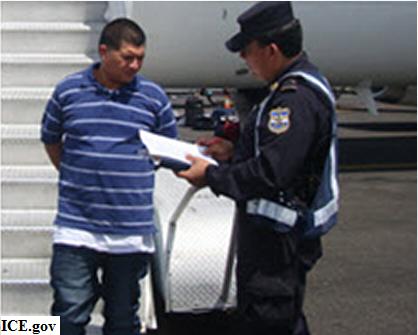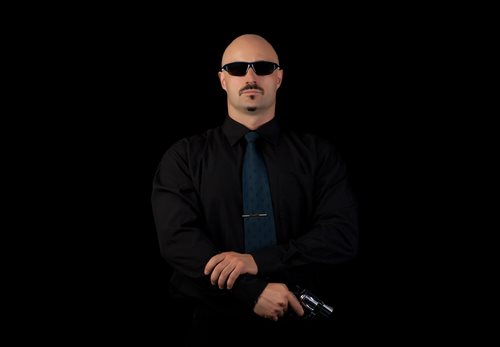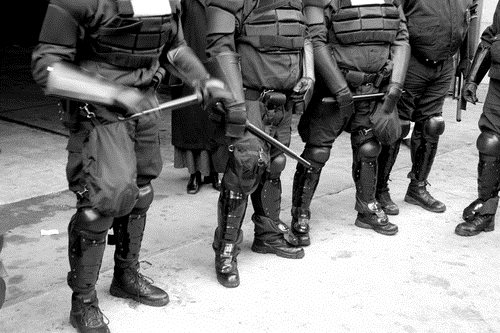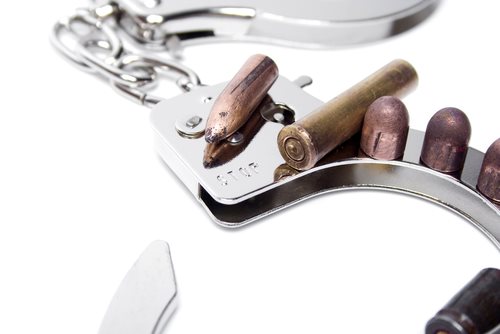Man Deported for Murder, Extortion, and Organized Crime









On November 29, 2012, the US Attorney’s Office for the District of New Hampshire announced that David M Kwiatkowski was indicted for infecting patients in New Hampshire and other states with Hepatitis C. He is a former Exeter Hospital employee.
According to the indictment, Kwiatkowski worked in Michigan as a health care worker and became a traveling health care technician in 2007. He worked in New York, Pennsylvania, Maryland, Arizona, Kansas, Georgia, and New Hampshire.
Kwiatkowski knew he was infected with Hepatitis C since at least June 2010, and he started working for Exeter Hospital in April 2011.
While working at Exeter Hospital, Kwiatkowski stole the controlled substance fentanyl—which has analgesic effects. He knew when a patient was going to undergo a medical procedure, and he replaced the syringes of fentanyl with syringes of saline. The syringes filled with saline were originally filled with fentanyl, but Kwiatkowski used the syringes himself before refilling them with saline—thus tainting the syringes before they were used on patients.
Over 30 people became infected from Kwiatkowski’s Hepatitis C virus in New Hampshire and other states. He was arrested on July 19, 2012.
Hepatitis C is a blood-borne virus that is capable of causing serious liver damage. The Centers for Disease Control and Prevention (CDC) state that Hepatitis C kills more people in the United States every year than HIV.
Kwiatkowski is charged with seven counts of tampering with a consumer product and seven counts of fraudulently obtaining controlled substances. He faces up to 10 years in prison on each tampering charge and up to four years in prison on each count of obtaining controlled substances. Each count is punishable with a $250,000 fine as well.
The investigation is still ongoing. Kwiatkowski remains innocent until proven guilty.
Source: Federal Bureau of Investigation


Introduction
Megan’s Law is a critical piece of legislation that plays a pivotal role in safeguarding communities across the United States from sexual offenders. Each state in the U.S. has its own version of Megan’s Law, aimed at monitoring and regulating the activities of individuals convicted of sexual offenses. In this article, we will delve into the specifics of Pennsylvania’s Megan’s Law, exploring its history, objectives, implementation, and the resources available for public awareness and safety. To ensure accuracy and credibility, we will primarily rely on information from government resources.
Megan’s Law is named after Megan Kanka, a young girl from New Jersey who was tragically sexually assaulted and murdered by a neighbor who was a previously convicted sex offender. Her death in 1994 was a wake-up call that highlighted the need for greater community awareness and protection against sexual predators.
Pennsylvania, like many other states, responded to this tragic event by enacting its own version of Megan’s Law. The primary objectives of Megan’s Law in Pennsylvania include:
Pennsylvania’s Megan’s Law is a comprehensive and multifaceted system designed to track, register, and manage individuals convicted of sexual offenses. The key components of its implementation include:
III. Megan’s Law and Constitutional Considerations
While Megan’s Law has been instrumental in enhancing community safety, it has also raised constitutional questions and concerns, particularly regarding privacy and due process rights. Some individuals argue that the public shaming associated with community notification may infringe upon the constitutional rights of sex offenders who have completed their sentences and paid their debt to society.
The U.S. Supreme Court addressed these concerns in the case of Connecticut Department of Public Safety v. Doe (2003). In this case, the Court upheld the constitutionality of Megan’s Law-type statutes but also emphasized the importance of individualized risk assessment and periodic review.
Pennsylvania has made efforts to address these constitutional concerns by implementing a tiered system that takes into account the risk level posed by individual offenders. This approach is designed to balance public safety with the rights of the convicted.
Pennsylvania’s Megan’s Law places a strong emphasis on public awareness and community safety. To facilitate this, the state provides various resources to help residents stay informed and take proactive measures:
Megan’s Law in Pennsylvania, like in many other states, has evolved over the years to address emerging challenges and adapt to changes in technology. Some notable developments and considerations include:
Conclusion
Pennsylvania’s Megan’s Law is a vital tool in the ongoing efforts to protect communities from sexual offenders. Its emphasis on community notification, tiered risk assessment, and public resources for awareness and safety make it a comprehensive and dynamic system. While it is not without its constitutional and logistical challenges, Pennsylvania continues to refine and adapt its Megan’s Law to ensure the safety and well-being of its residents. As the landscape of sexual offender management evolves, Megan’s Law in Pennsylvania will likely continue to play a central role in community safety.
PENNSYLVANIA’S MEGAN’S LAW is essentially an adjunct to the NATIONAL MEGAN’S LAW that was put into effect by then President Bill Clinton in 1996. In 1995 then Governor of Pennsylvania, Tom Ridge, introduced legislation to protect the citizens of Pennsylvania from the threat of registered sex offenders living within the State. The bill became active in April of 1996. PENNSYLVANIA’S MEGANS LAW, which was signed as Act 24 of 1995 imposes a number of criteria upon registered sex offenders.
WHAT DOES PENNSYLVANIA’S MEGAN’S LAW REQUIRE OF SEX OFFENDERS?
The PENNSYLVANIA MEGAN’S LAW allows sentencing courts to impose life sentences on those sexually violent offenders who are deemed to be “predators.” PENNSYLVANIA’S MEGAN’S LAW also requires sex offenders and sexually violent predators to register with the Pennsylvania State Police. It also stipulated that communities be notified when and where a sexually violent predator moves into an area.
WHAT ARE THE REGISTRATION REQUIREMENTS?
The State of Pennsylvania requires sex offenders, as per PENNSYLVANIA’S MEGAN’S LAW to register with the State Police Department for a period of time upon their release from prison. The State breaks up the requirements to 10 years of registration to Life registration.
The requirement of 10 year registration is reserved for crimes including: kidnapping of a minor, luring a child into a motor vehicle, incest where the victim is over 12 years of age, obscene and other sexual materials where the victim is a minor, sexual abuse of children, unlawful contact with a minor, and a list of others that may be found at www.pameganslaw.state.pa.us.
The requirement of life registration is reserved for crimes including: offenders with two or more convictions of any of the offenses set forth in the 10 year registration requirement, rape, sexual assault, incest where the victim is under 12 years of age and offenders considered sexually violent predators. For a full list of the offenses that require lifetime registration see www.pameganslaw.state.pa.us.
WHAT INFORMATION DOES PENNSYLVANIA’S MEGAN’S LAW PROVIDE CITIZENS?
Pennsylvania seems to take a stricter stance on the amount of information that a sex offender living within the State must provide. This data include:
· Name and all known aliases;
· Year of birth;
· Street address, city, municipality, county, zip code and all residences, and where applicable the name of the prison or other place of confinement;
· Name, address and all other information associated with an offenders school or employment;
· Physical description of the offender, including photos;
· Identification marks;
· License plate numbers and descriptions of vehicles;
· Current registry compliance status;
· Whether the victim of the offense was a minor;
· A description of the offense;
· Date of conviction;
· A map of where the offender lived and attends school, if applicable.
DOES PENNSYLVANIA RESTRICT THE LOCATION WHERE A SEX OFFENDER MAY LIVE?
PENNSYLVANIA’S MEGAN’S LAW does not restrict where a registered sex offender may reside. The exception to the rule is that a registered sex offender may not live near a school, park, daycare center, nursing home, etc. in certain circumstances. For more information please visit Pennsylvania’s State website.